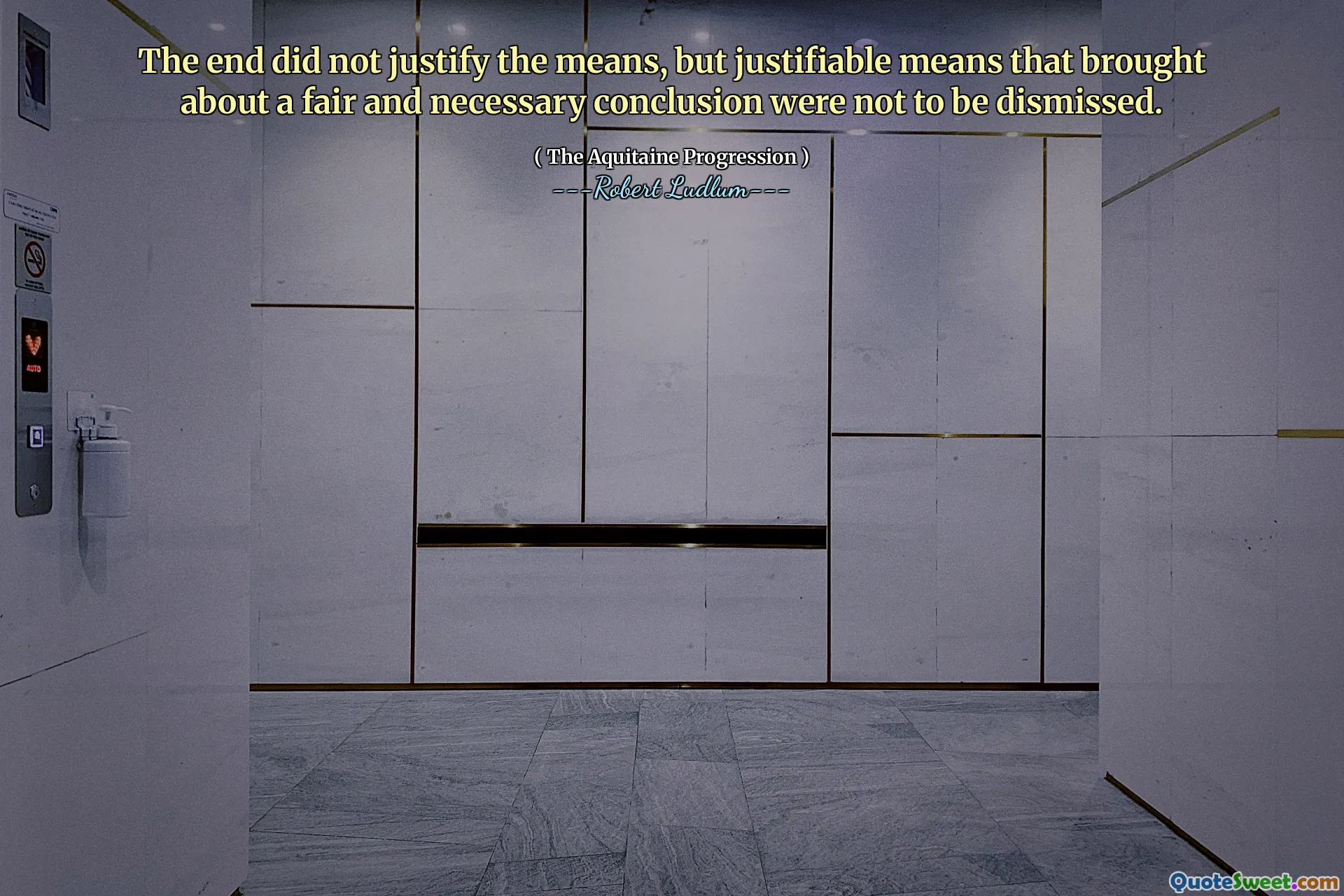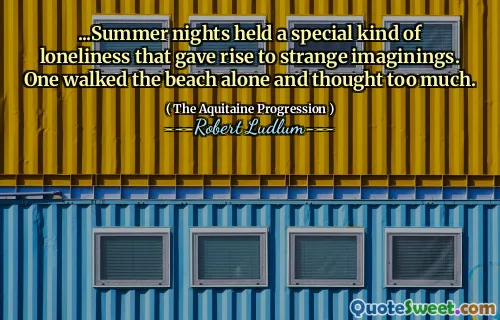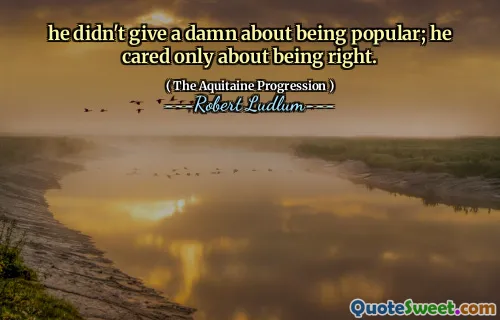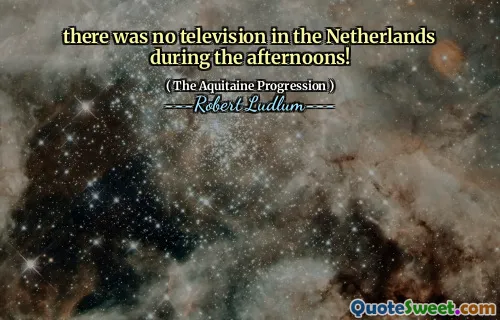
The end did not justify the means, but justifiable means that brought about a fair and necessary conclusion were not to be dismissed.
The quote highlights the complex relationship between actions and outcomes, suggesting that while the end result may not always validate the methods used, it is essential to recognize that some means can lead to justifiable outcomes. It emphasizes the need for a careful evaluation of the pathways taken to achieve a conclusion, especially when that conclusion is deemed fair and necessary.
In the context of the story, this philosophy reflects the moral dilemmas faced by characters who must weigh their choices carefully. It implies that ethical considerations should not be overlooked, even in pursuit of a worthwhile result, calling for a balance between idealism and pragmatism in decision-making processes.









